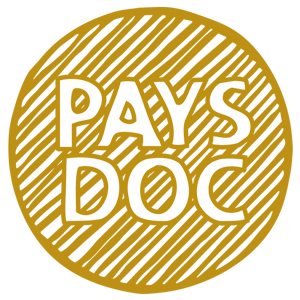Contact information
Frequently Asked Questions
What is the legal status of professional tour guide accreditation?
What is a Tour Guide?
The mission of the Tour Guide is to conduct guided tours in museums and historical monuments. The role is to promote national heritage. The Tour Guide is enthusiastic about history and must have excellent general and cultural knowledge! However, the tour guide must also use technical skills that are equally important: knowing how to position yourself, control your voice, ensure the group’s security, and manage excursions, how to organise and host a visit. To attest to their knowledge and professionalism, the Tour Guide holds a national professional accreditation issued by the Ministry of Culture and Tourism.
How to recognize a Tour Guide?
Tour guides wear their professional accreditation on a badge around their neck. This accreditation is the recognition that offers the tour guide the right to comment and share their knowledge in a museum or about a historical monument. Only those who hold the professional tour guide accreditation are recognized as “qualified” and “legitimate” in this role.
How do you become a Tour Guide?
To become a Tour Guide, you must hold a professional degree in tourism or a master’s degree that includes the “skills of a Tour Guide.”
I am organising an excursion and have some historical knowledge; do I have the right to guide a group?
Freetour, greeters, why not?
Greeters are volunteers who offer guided walks to small groups in their cities. Even if they offer local information of interest, they are not officially qualified to convey history and heritage. For a few years now, some people have been offering so-called “free tours”. These visits are conducted by non-registered guides, asking for discretionary participation… The main risk posed by these visits is that they are of lower quality and therefore discredit the Tour Guide profession. Moreover, visits managed by real Tour Guides, although they require a reservation, are often no more expensive than the participation requested on “free tours”.
Thus, confusing these different offers may lead the public to believe that greeters and those who offer “freetours” are professionals, just as Tour Guides may be volunteers. Only Tour Guides can guide you safely and offer you their certified, authentic knowledge of History.
Another important distinction when making your choice is that the Tour Guide subscribes to liability insurance which provides protection for the group. Freetours and greeters do not offer this added security.
You can’t find an available guide in the desired language? → Interpreter
Paysdoc is also a large network of partners in the world of tourism and languages. We can offer you an interpreter service to guarantee the well-being of the participants.
I need help setting up my travel project → Travel planner
What is the right to comment?
The “right to comment” is an authorization granted to a professional guide from outside a site visited (museum, monument, or castle) to conduct a visit within it. It can be applied for groups or for individual visitors and can be free or paid but is mandatory and highly regulated. Persons concerned are curators, teachers with their pupils, interpreter guides and tour guides holding a professional accreditation issued by the Ministry of Culture and Tourism.
The “right to comment” is valid only during the visit. Each museum, monument and castle have their own way of operating and its own regulations.
